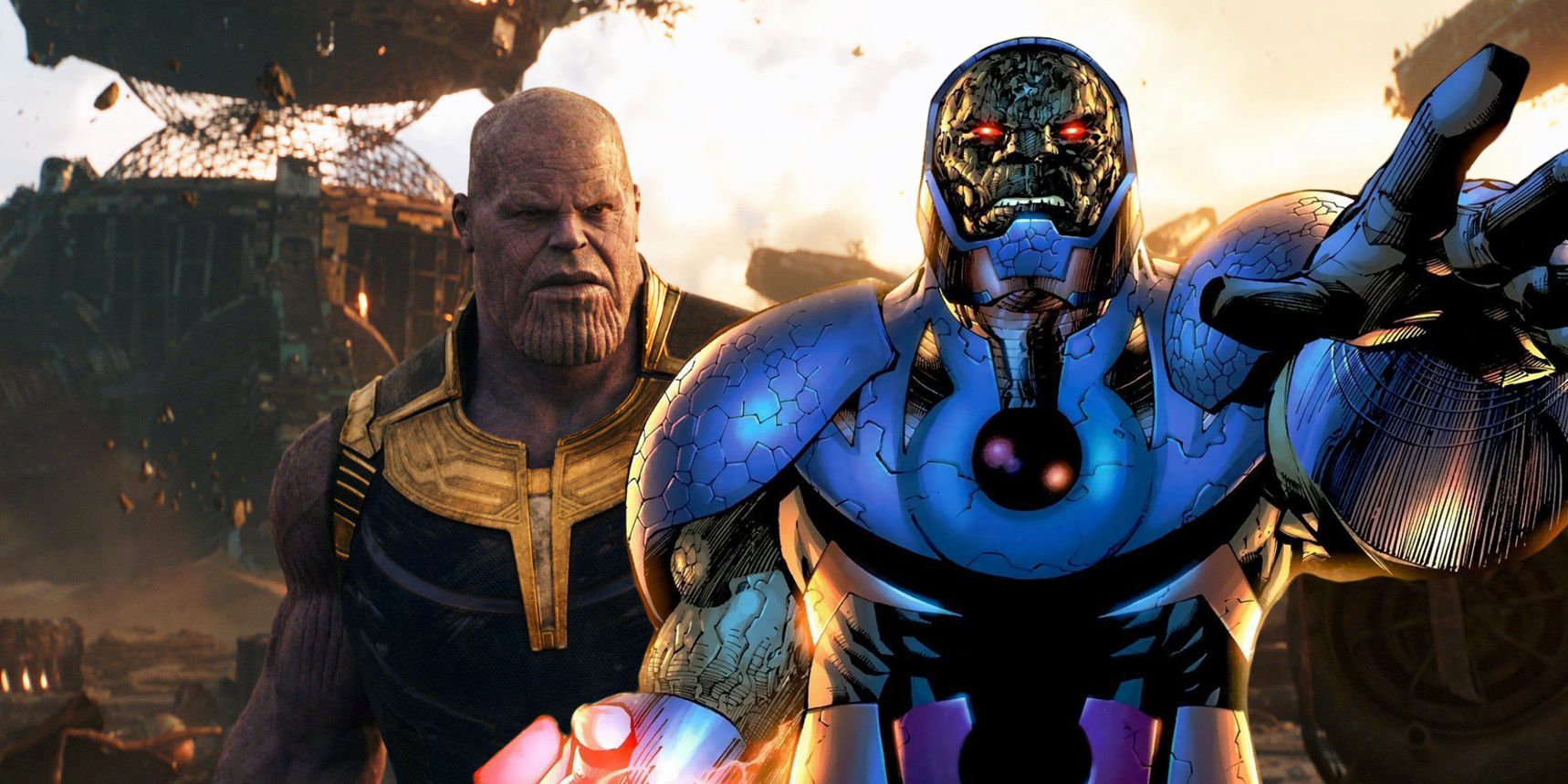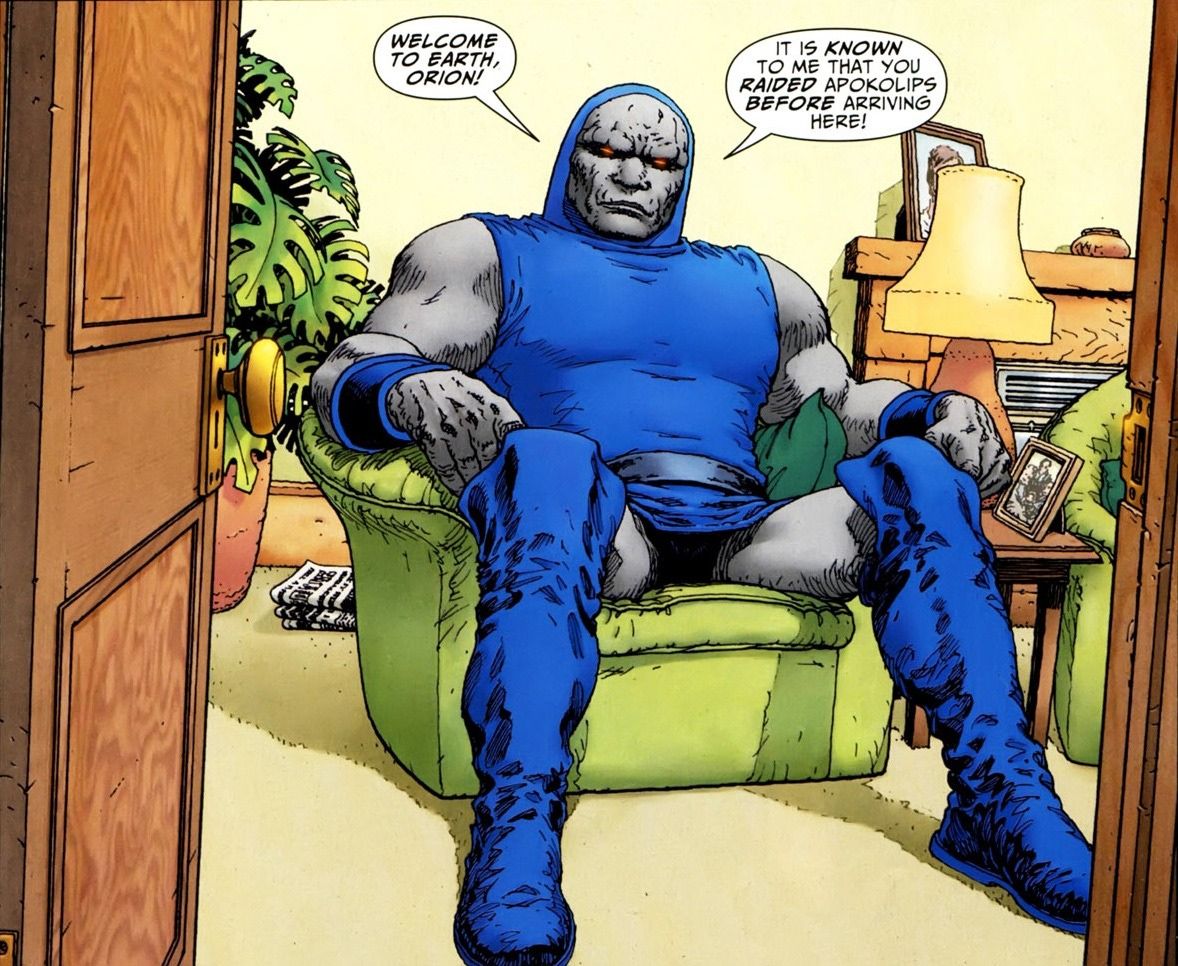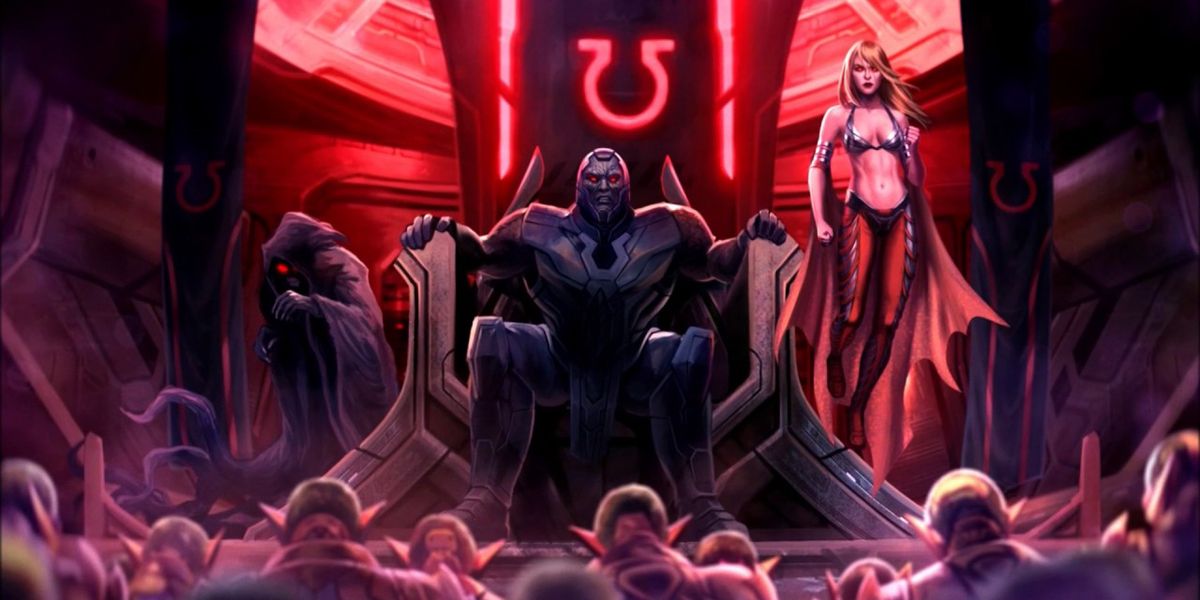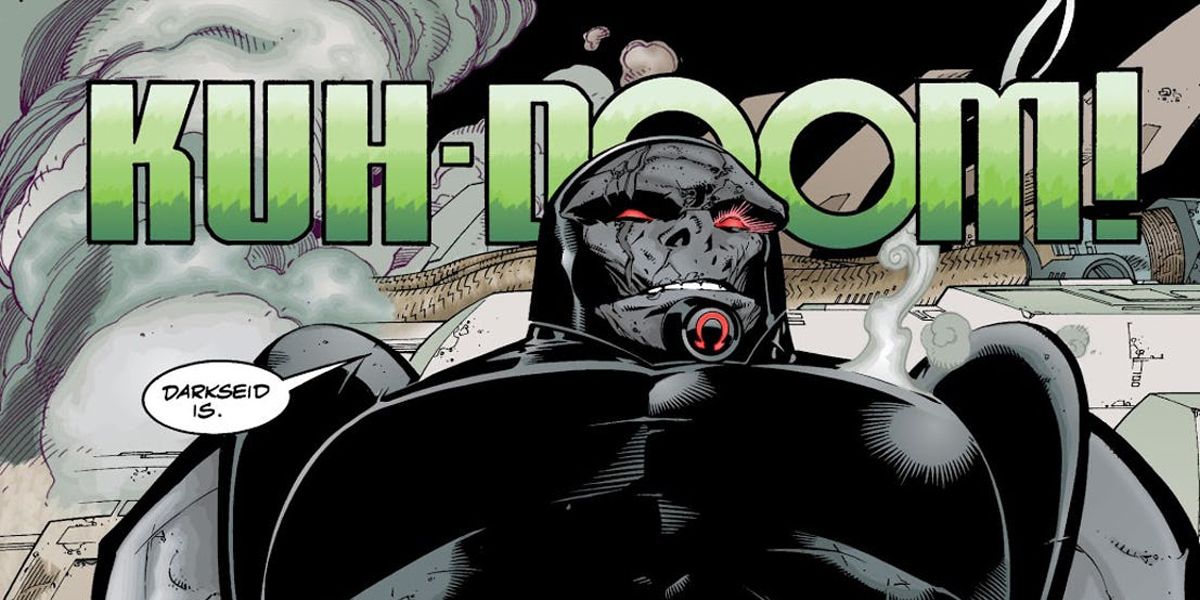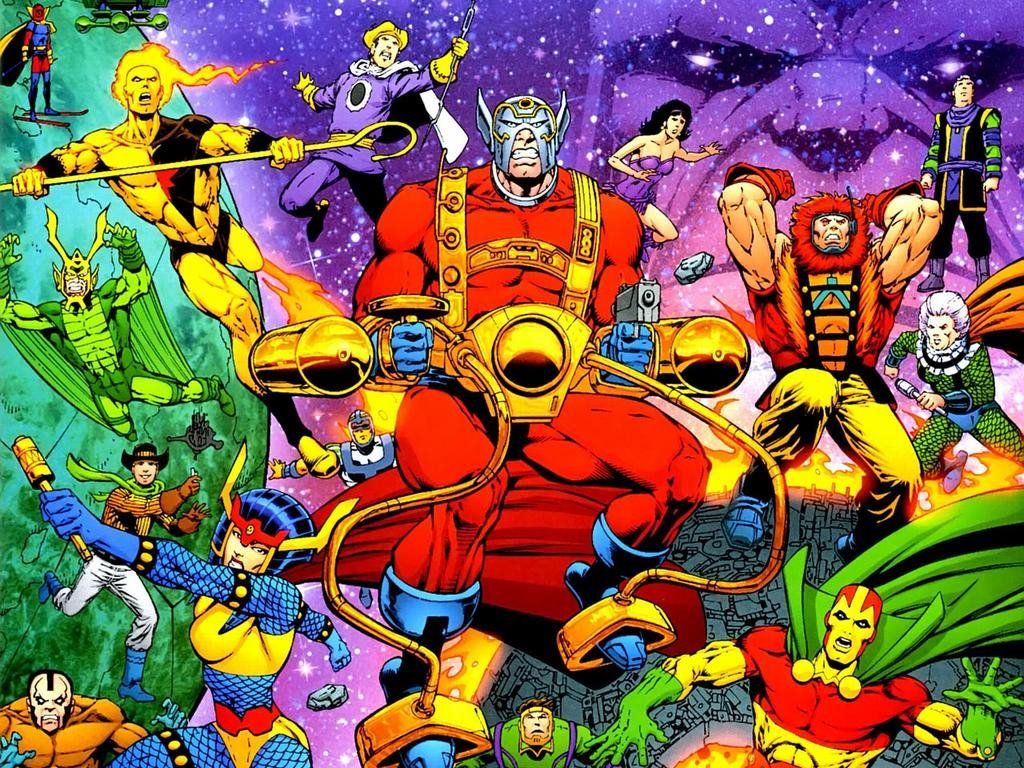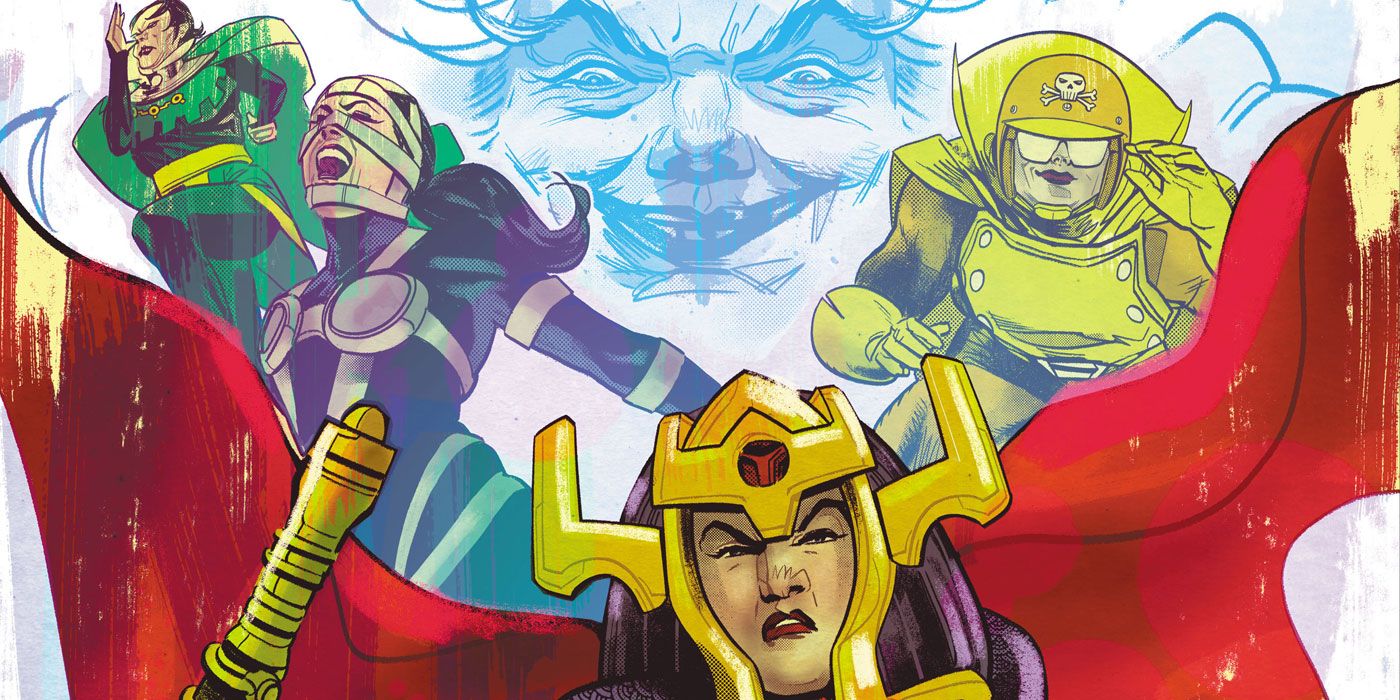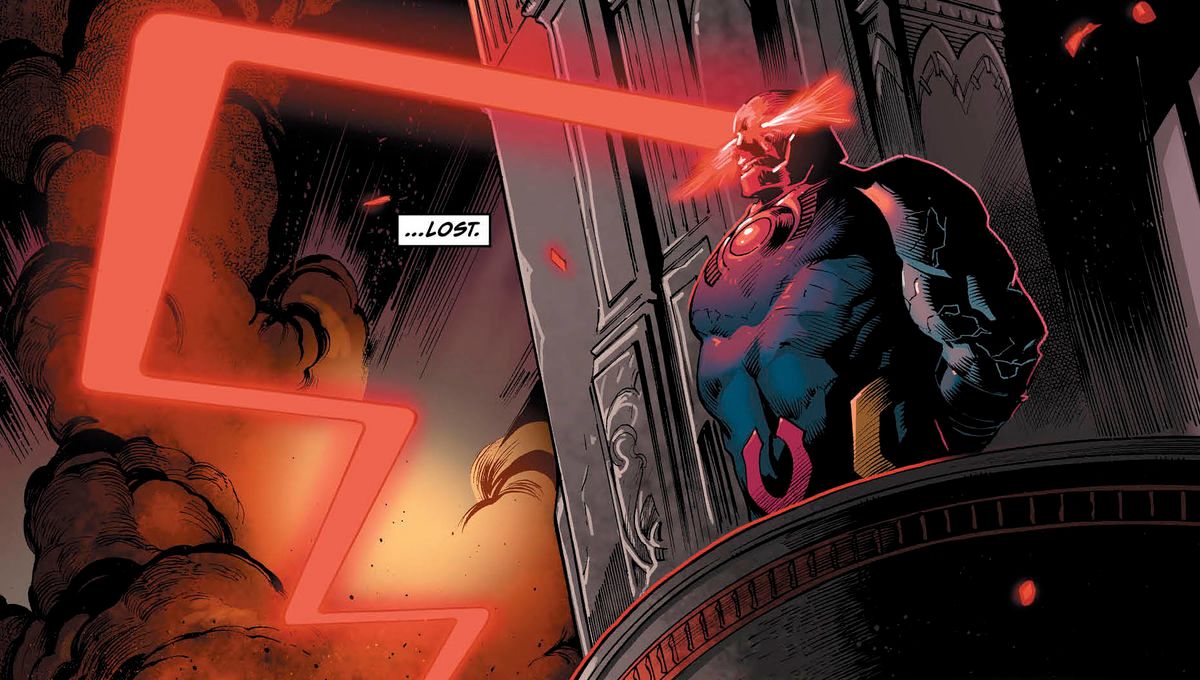Recent confirmation that director Ana DuVernay's New Gods will feature Darkseid makes perfect sense to anyone familiar with the DC property, created nearly 50 years ago by Jack Kirby. After all, Darkseid, or Uxas, is one of the biggest villains not only in the DC Universe, but in comics in general. Thus, finally bringing threat to life on the big screen would be an event in itself. However, the biggest issue the Warner Bros. film will come up against is the cinematic presence of Thanos, Marvel's own cosmic menace.
The Mad Titan, who's virtually a household name thanks to Avengers: Infinity War and Avengers: Endgame, was introduced in the comics as little more than a Darkseid clone, but he has gone on to become one of fiction's biggest villains in his own right. Still, to general audiences, the similarities between the two characters, both in their appearance (big, alien and seemingly chiseled from stone) and in the universe-altering MacGuffins they seek (the Infinity Stones vs. the Anti-Life Equation) will be noticeable However, there are ways DuVernay's New Gods movie can help differentiate the dictator of Apokolips from his Titan competition.
A Lighter Side (or Seid)
Despite his genocidal plans for universal population control, Thanos was oddly taciturn about his task. His grandiose agenda was carried out with a sort of workhorse dedication, made more terrifying because he saw his job as little different from how a plumber or carpenter might view theirs.
Contrast that with the subtle theatricality of Darkseid. He seeks the Anti-Life Equation, a sort of cosmic concept that would render all life moot. That wouldn't be through genocide, but in the evaporation of individuality and emotion, leading to the submission to Darkseid. Despite how boring the universe would be if he succeeded, Darkseid is typically portrayed with a rather dramatic presence. In the comics, he's never been above randomly stopping by his enemies' apartments, sitting in their La-Z-Boy, or munching on a delicious vegetable party tray. In the case of the former, it's never done to ambush and kill an enemy, but simply to toy with them. That reversal of tone would be an easy way to superficially set the two apart, but it could also be done by focusing on Darkseid's goals. A good illustration of how Darkseid's premise should be portrayed would actually be the Beast Machines version of Megatron, who sought to remove all other sources of free will on Cybertron, even if at the expense of emotion and compassion.
The F Word
Darkseid represents fascism, pure and simple. His goal of eradicating all individual will, save his own, essentially weaponized conformity. While Thanos might be inevitable, Darkseid is the end. This quintessential dictator quality could be portrayed in suppression of opposing views and forcing Apokolips to conform to the world within Darkseid's mind. That is the difference between villains like Thanos or Galactus, who have a sort of duty, or even biological need, for their actions, and Darkseid, who desires to force all life to genuflect.
Darkseid Is, Thanos Isn't
Thanos is extremely powerful, being the strongest villain to appear so far in the Marvel Cinematic Universe. Despite that, he is notably weaker in his onscreen portrayal, and without the Infinity Gauntlet, that weakness is even greater. For instance, Captain Marvel was clearly giving Thanos some trouble in Endgame. On the contrary, a well-written Darkseid should be able to slap away even the likes of Superman, DC's premier hero. The pure power on display would prove as to why Darkseid is referred to as a "New God."
Gods and Mortals
New Gods can, and most definitely should, delve into the epic, biblical nature of its pantheon. This backstory would serve to flesh out the title characters, and explain the enmity between Highfather and Darkseid. Thanos, on the other hand, had most of his backstory glossed over. In fact, his motivation was completely changed from the comics, due to the filmmakers choosing to not use his relationship with the personification of Death. Thus, when Thanos truly becomes a big deal in Infinity War, he's simply the next in line after Loki and Ultron to take on the Avengers. By developing the exclusive mythology of the New Gods, the eponymous movie can differentiate its villain from Marvel's by simple virtue of having him as more than just the next big boss.
A Dark Order
Thanos' horde of minions, the Black Order, is actually a fairly recent creation. Introduced in the comics in 2013, the "Children of Thanos" gained mainstream notoriety in 2018's Infinity War. Darkseid, on the other hand, has had his loyal cadre of evil since his own first appearance. They include Granny Goodness and her Female Furies, the deceptive Desaad, the glorified televangelist Godfrey, and his battle-ready uncle Steppenwolf.
DuVurnay has suggested the Furies will appear in the film, and their relationship with Darkseid would go a long way in making him stand out against Thanos and his rather generic minions. Meanwhile, Steppenwolf already appeared in 2017's Justice League, fulfilling a role that was originally meant for Darkseid. It's unknown how closely the so-called DC Extended Universe will hew to its less-successful entries, so Steppenwolf's connection to New Gods is probably tenuous at best. That Steppenwolf serves his own nephew, however, would underscore how powerful Darkseid is.
The Voice of Evil
Thanos is known for the imposing voice given to him in the MCU Josh Brolin. As awesome as it sounded, it honestly wasn't that different from Brolin's normal voice. That goes back to how workmanlike Thanos was in his mission. Darkseid should instead have a booming, almost over-the-top, voice that oozes evil. Similar to Benedict Cumberbatch's Smaug in The Hobbit, Darkseid's voice should be felt and experienced as much as it is heard. That would easily elevate the villain to a scene-stealing status, comparable to Thanos'.
Although it will still be an uphill battle to make Darkseid seem different, given how fresh Thanos is in the zeitgeist, a story that truly develops the relationships between the New Gods will make Uxas of Apokolips eclipse his pale imitation.
Directed by Ava DuVernay with a script by DuVernay and Tom King, New Gods currently has no release date or cast announced.

